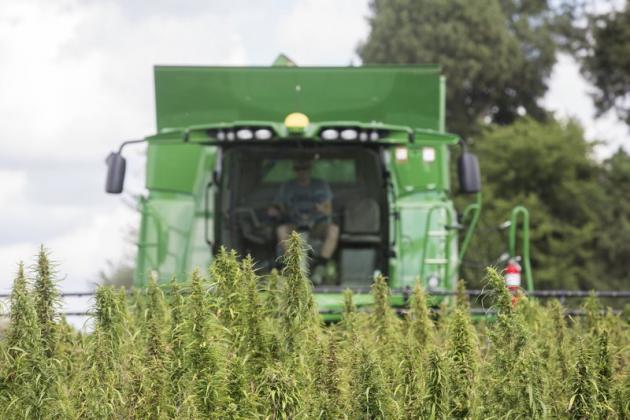Current hemp economic situation
It’s time for the majority of hemp producers to start planting their 2020 crop, but many of them are doing so with much uncertainty for what the coming growing season holds in terms of prices, contracts and crop quality.
While the 2019 growing season started with much optimism, it ended up with producers and processors experiencing a young industry’s growing pains. Some of these pains included regulatory uncertainty, overproduction and lack of infrastructure development.
In 2019, 92% of the hemp grown in Kentucky was done so for CBD production. Interest in CBD production is expected to be down across the state this year, as producers faced many challenges in 2019. Many struggled to achieve acceptable THC levels; 43% of Kentucky samples registered levels higher than the allowable 0.3% THC. They also faced pest and disease issues in the fields. CBD prices dropped by 76% between July and November. Some hemp processors struggled financially, and many producers found themselves with a contract that was not enforceable because of the company’s financial condition and changes within the hemp market. This resulted in contract defaults, lawsuits and bankruptcies. These challenges occurred not only across Kentucky, but throughout the nation.
With this said, University of Kentucky enterprise budgets for CBD production continue to show profits and continue to make it the most profitable form of hemp production in 2020. It is important to note that these profits are smaller than in 2019. The budgets are available at https://hemp.ca.uky.edu. These are only sample budgets for what UK agricultural economists expect for the average hemp producer in terms of expenses and income. Since the industry is so new, we are still in the process of determining what an “average” hemp producer is. We recommend that producers use the budget as an example and insert all of their production costs and expected income into the budget, so it is tailored to their unique situation.
Producers should seek legal counsel before signing any contract with a processor, and you should understand and be comfortable with the contract’s terms. Remember that your projected income is a moot point, if your contract is not enforceable.
As with any agricultural enterprise, producers assume risks when growing hemp. But in 2020, you have access to more risk management tools through the U.S. Department of Agriculture to help you offset some of those. You can insure hemp under the Whole-Farm Revenue Protection Policy, Non-insured Crop Disaster Assistance Program, or if your county is one of the 95 participating Kentucky counties, in the Actual Production History Pilot Program. We recommend that you speak with your Risk Management Agency insurance provider for more information on these programs.
Now, for the question that’s on everyone’s mind—what’s the COVID-19 pandemic going to do the hemp market? The market is likely to be affected, but we do not know what those effects are going to be at this time. Since the markets are still very young, there is not a lot of market transparency, and we do not have a lot of information on the crop’s supply and demand.
What we do know is more states and tribal lands will be growing hemp this year, which will likely lead to more market competition and depressed prices. The industry still has a lot of growth and development in front of it. More research is needed to determine the best hemp production methods. We need further clarification from the USDA, and there is uncertainty about whether the Food and Drug Administration will eventually regulate the crop.
More information on hemp economics is available at hemp.ca.uky.edu or by contacting the ButlerCounty office of the UK Cooperative Extension Service.
Educational programs of the Cooperative Extension Service serve all people regardless of economic or social status and will not discriminate on the basis of race, color, ethnic origin, national origin, creed, religion, political belief, sex, sexual orientation, gender identity, gender expressions, pregnancy, marital status, genetic information, age, veteran status, or physical or mental disability.
Source: Jonathan Shepherd, extension specialist
Article submitted by Greg Drake II, Butler County Extension Agent for Ag and Natural Resources



























